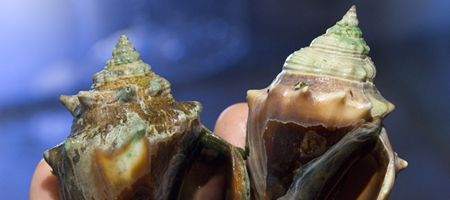Shellfish respond to increasing acidification in seawater – such as that produced by climate change – by producing lighter, thinner shells.

As more and more carbon dioxide is generated by human beings, it becomes dissolved in the oceans, making them more acidic. And according to British, Australian and Singaporean scientists, this is affecting the size and weight of shells and skeletons, in a trend affecting many marine species.
As these creatures are an important food source for marine predators – and human beings – there could be effects on the global food chain.
The team investigated the natural variation in shell thickness and skeletal size in four types of marine creatures living in 12 different environments from the tropics to the polar regions.
And it seems that the effort required by clams, sea snails and other shellfish to extract calcium carbonate from seawater to build their shells and skeletons varies from place to place in the world’s oceans.
A number of factors, including temperature and pressure, affect the availability of calcium carbonate for species that produce carbonate skeletons, with the poles appearing likely to be worst hit.
“This effect is strongest at low temperatures and the results showed polar species to have the smallest and lightest skeleton, suggesting that they may be more at risk in the coming decades as the oceans change,” says professor Lloyd Peck of the British Antarctic Survey.
There’s already evidence that ocean acidification is affecting the ability of some marine species to grow, especially during their early life stages – and mounting concern about whether or not these species can evolve or adapt to cope with increases in acidity in future.
TRhe team says that, over evolutionary time, animals have adapted to living in environments where calcium carbonate is relatively difficult to obtain by forming lighter skeletons.
“In areas of the world’s oceans where it is hardest for marine creatures to make their limestone shell or skeleton, shellfish and other animals have adapted to natural environments where seawater chemistry makes shell-building materials difficult to obtain,” says Dr Sue-Ann Watson, of James Cook University.
“Evolution has allowed shellfish to exist in these areas and, given enough time and a slow enough rate of change, evolution may again help these animals survive in our acidifying oceans.”






